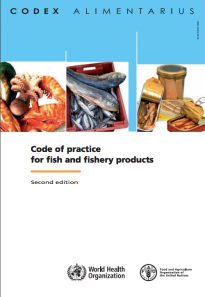Skills and Knowledge for Canning
Key skills and knowledge required by those managing and working in a cannery to prevent and reduce food loss and waste (FLW) include:
- principles of canning
- packaging materials for canned fishery products
- unit operations
- fish spoilage and raw material handling
- pre-treatment
- pre-cooking
- filling
- sealing
- retorting
- post-process handling
- final operations
- canning processes
- equipment for fish canning
- process control in fish canning operations
- GMP prerequisites
- hazard analysis critical control point (HACCP)
Canning operations involve the sourcing, handling, cold storage and processing of large volumes of fish. Hence an understanding of logistics is important.
Canning is highly automated involving specialized machinery. Engineering skills and knowledge will be required in order to maintain operations and avoid unnecessary problems during processing which could lead to FLW.
Key Publications
The manual provides a background to the principles of canning and to the specification and construction of containers for the sterilization of fishery products. | |
Code of Practice for Fish and Fishery Products Codes of practice and guidelines designed to help meet standards and comply with legislation (e.g the Codex Alimentarius Code of Practice for Fish and Fishery Products). | |
Code Of Hygienic Practice For Low And Acidified Low Acid Canned Foods This Code of practice is concerned with the canning and heat processing of low-acid and acidified low-acid foods as defined in this Code, packed in hermetically sealed containers. |
More Resources
More Resources
27 February 2024
31 October 2023
05 September 2023














